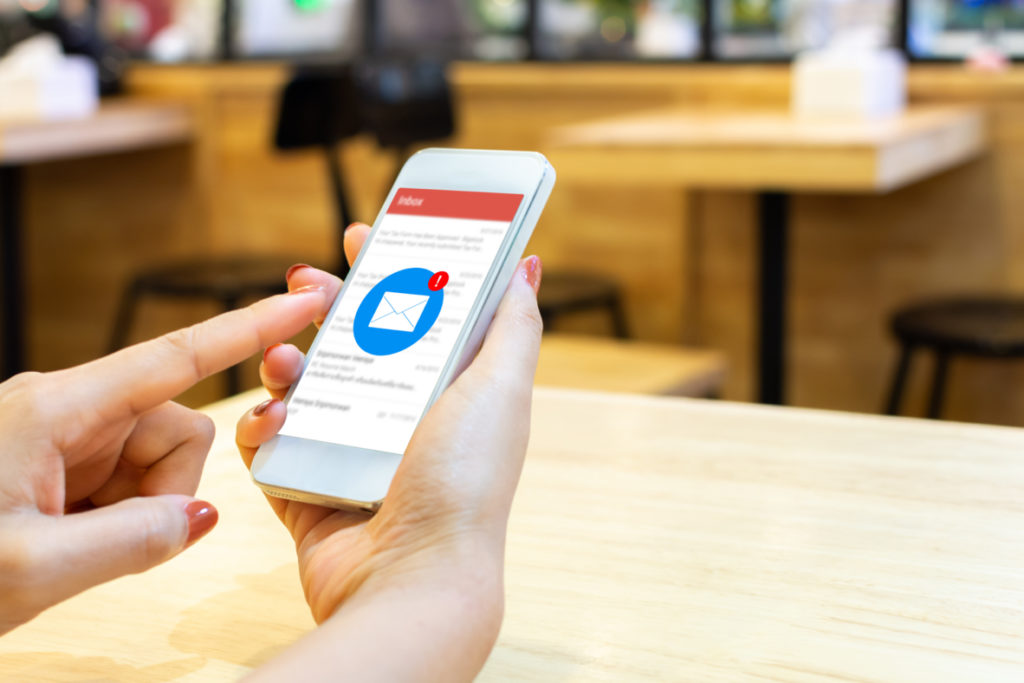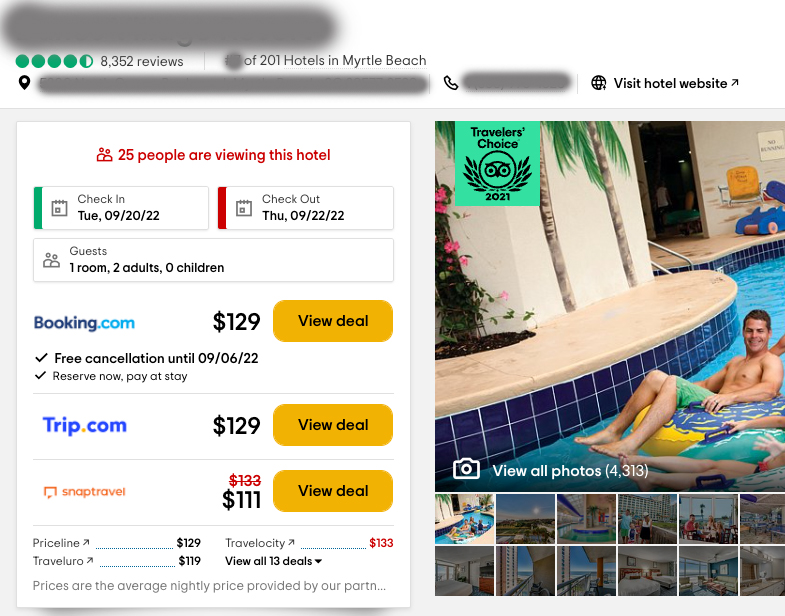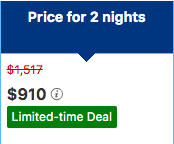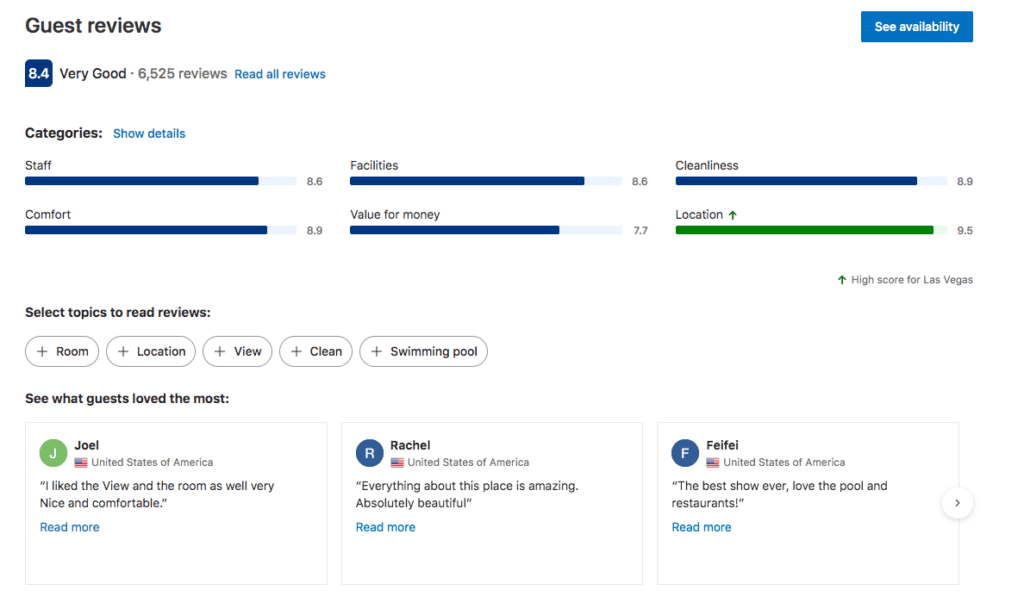In this article, well cover the tools and approach independent hotels can use to increase direct bookings and reduce OTA reliance. We call that a winning OTA strategy.

The best OTA strategy for hotels doesn’t include OTAs. Well, sort of.
In many cases, leveraging OTAs to be a complimentary piece of your hotel’s overall goals is necessary.
However, if you’re looking to build more direct bookings and revenue, and avoid paying costly commission fees to Kayak, Trivago, Expedia, and countless other OTAs, you’re in the right place.
In this article, we’ll cover the tools and approach independent hotels can use to increase direct bookings and reduce OTA reliance. We call that a winning OTA strategy.
Check out our recommendations to building a successful OTA strategy for your hotel:
Keep YOUR guest

Most of the time, hotels don’t receive the guest’s personal information (such as an email address or a phone number) when they book through an OTA.
That means they’re going to get bombarded with marketing and exposed to your competitors through the mighty OTA marketing machine.
We don’t suggest cutting off OTAs all at once. However, we do suggest creating a data mining strategy to ensure that when a guest books via an OTA that they book direct in the future.
When an OTA guest checks in, your primary goal should be to get their email address. Make sure that you have the ability to communicate with them and foster an ongoing relationship from the moment they arrive at your hotel through the post-stay survey. When an OTA guest checks out, your primary goal is to ensure that guest never appears as an OTA booking again.
Once you have that information collected, it’s an opportunity to keep in touch with your guests (OTA or direct) after their stay and prior to their next stay. A useful way of reconnecting with your OTA guests could be:
- A targeted post-stay email campaign, letting them know they can improve their experience on their next stay if they book direct.
- Target those same OTA guests with a special message prior to their booking anniversary to convert them to direct bookings.
Use OTAs (at the right time)
There can be some benefits to promoting your hotel on OTAs. But do so with strategic planning.
Don’t approach OTAs the same way year round. If your peak season is in the summer and your off-season is in the winter, modify your OTA inventory to reflect that. If you know you’re going to sell your high-end units during peak months, don’t put them on the OTAs. Instead, push your lowest-priced inventory as a way to sustain visibility but also draw the consumer to your own website where they can select other room types.
No need to spend more where you don’t need to. Reducing your efforts on OTA sites now can likely help you save money down the road.
Bid on your brand
In most cases, OTAs will bid on your hotel’s brand keywords via the major search engines in the hopes of intercepting guests who already have an interest in staying at your property. If you’re familiar with hotel pay-per-click (PPC), you already know how important it is to bid on your brand.
 Use call-outs in your branded ad copy that highlights authority and reassurance.
Use call-outs in your branded ad copy that highlights authority and reassurance.
In order to compete, be smart about your ad copy. We frequently see phrases such as “Lowest Rates Guaranteed” and “Official Hotel Website” get better results than generic ad copy. This is also where you need to promote the value propositions that set your property apart from the competitors (room discounts, free breakfast, room upgrades, etc). Doing so greatly increases the chance of customers clicking your ads instead of OTA ads.
In the grand scheme of things, it’s better to pay a few quarters per click to Google than it is to pay a high percentage per booking to the OTAs.
Get on Tripadvisor

Tripadvisor’s CPC bidding model in the wild.
Tripadvisor’s Instant Booking platform gives individual hotels an unprecedented ability to drive direct bookings through a commission-based program.
This hybrid model is considered a direct booking, though Tripadvisor is acting a bit like an OTA in that they receive either a 12% or 15% commission on each booking.
When combined with a TripConnect CPC program, these marketing options creates a very effective barrier to OTAs siphoning off your guests from Tripadvisor.
Get on Google
Google’s aggressive transition into a massive online booking engine for all types of travel is causing a stir amongst OTAs. But if your hotel isn’t present on Google, an OTA likely will be. Within Google’s evolving travel landscape is Google Hotel Ads (GHA).
The GHA channel is another way to compete head to head with OTAs and ensures that when a customer is searching for your hotel’s room rates, you appear alongside the OTAs. Campaign configuration is critical with Google Hotel Ads and when implemented properly, can help you drive more direct bookings.
“…if your hotel isn’t present on Google, an OTA likely will be.”
TravelBoom’s hotel meta search management (GHA, TripAdvisor, Microsoft Hotel Ads, etc) service is backed by machine learning and artificial intelligence and has resulted in ROAS gains as much as +65% for our clients.
Offer what OTAs can’t
Customers like to feel like they’re being treated special or receiving a little something extra. It’s not hard to think of something that’s going to cost you less than the 15% or higher OTA commission and also provide more value to the guest.
Consider the following strategies to boost your direct bookings:
Offer the lowest rate
Give your guests a confidence boost that they made the right choice with a “Best Rate Guarantee”. This could be as simple as a price match. But the only way to qualify is to book directly. The most important part? Make sure everyone knows about it! Promote your guarantee on your website, in your marketing campaigns, on your social profiles, and wherever else customers can find you.
Offer late checkout
If you can make it work, adding an hour onto the check-out time for in-house bookings is a big incentive. You can do this by extending your direct bookings or by reducing your OTA booking check-out times.
Build a loyalty program
Loyalty programs are a big driver in both data gathering and direct bookings. In TravelBoom’s 2022 Leisure Travel Study, we found that 70% of leisure travelers are members of two to three hotel loyalty programs. That’s a great indication that loyalty programs work, and odds are, people are likely to join if you have one that’s worth joining. If your property management system has the ability to create membership levels, we highly recommend doing so.
Add on-property incentives
Be it a free snack tray upon check-in, dining discounts, or complimentary room upgrade, make your direct booking guests feel extra special and you’ll soon earn many more of them.
Not every customer is looking for the cheapest room. A lot are looking for the best value. At the end of the day your guest is going to make the decision that is best for them. Therefore, the more value you can provide to your direct bookings the better.
Use simple marketing psychology tactics
Have you ever noticed what OTAs do to influence a purchase? They are putting a tremendous amount of pressure on the conversion funnel using hotel marketing psychology tactics. Essentially, they are anticipating the questions and the roadblocks that are inevitably going to occur and they are resolving them before they happen.
Let’s break some of them down by looking at Booking.com’s tactics:
Reassurance
Call-outs such as “Free cancellation” and “No credit card fees” ensure that the guest isn’t going to have buyer’s remorse.

 Booking.com expertly uses reassurance messaging that eliminates doubt during the booking process. Fear of missing out
Booking.com expertly uses reassurance messaging that eliminates doubt during the booking process. Fear of missing out
Not only are they telling the guest that they already missed out on the best deal, they are also saying that the next best deal is selling out fast. This creates a sense of urgency that forces the guest to make a quick decision.

Booking.com’s simple messaging that builds traveler urgency. Social proof
Using both reviews and how recently someone booked the property is another way of reassuring the guest by saying, “other people have already done it and they don’t regret it”. People need to know that they aren’t making a mistake. In fact, we found that 82% of travelers read reviews before making a hotel booking.
 Reviews have a massive affect on the traveler decision making process. Being helpful
Reviews have a massive affect on the traveler decision making process. Being helpful
The best way to get someone to like you is to be helpful. Booking.com does this by figuring out what matters to the guest and making it very visible:
- Show how the location of the property and its vicinity to a landmark.
- Show guest reviews that can be filtered based on topic or traveler persona (family, business, couples, etc).
- Highlight the most important amenities and indicate which are free and which are an additional charge.
 Make sure travelers know about your value propositions.
Make sure travelers know about your value propositions.
If it’s within your hotel’s website’s and engine’s capabilities, this is a great opportunity to leverage these marketing psychology tactics.
Tell your guest how to behave
This may sound overly simple, but people do what you ask them to do IF you actually take the time to ask them. This is no different from nudging potential guests to book direct.
Your website should educate potential guests on the value of booking direct. Show “Lowest Rates Guaranteed” prominently on your site. Ask them to book direct and tell them what they get if they do so. Really play up the personal touch and develop a relationship.
Your website isn’t just a billboard; it’s an extension of your front lobby. Show the guest the type of experience they can expect when they arrive at the front desk. Make it personal and make it authentic.
If you’re ready to reduce OTA commission fees and increase direct bookings, get started with a free website evaluation by TravelBoom’s hotel digital marketing experts.
About TravelBoom Marketing
TravelBoom specializes in developing and executing customized data-driven marketing solutions that drive direct bookings and growth for its clients. With over 25 years of experience in digital marketing for travel and hotels, TravelBoom leverages advanced data science and analytics to uncover insights and develop strategies that greatly enhance results for our clients and reduce reliance on third-party channels. TravelBoom is also host of the world’s #1 ranked Hotel Marketing Podcast and its quarterly Traveler Sentiment Study both of which can be found at www.travelboommarketing.com.
